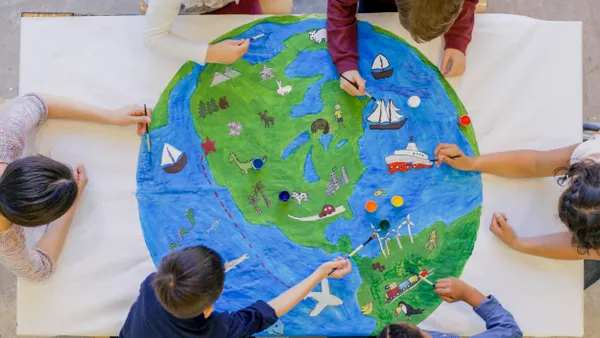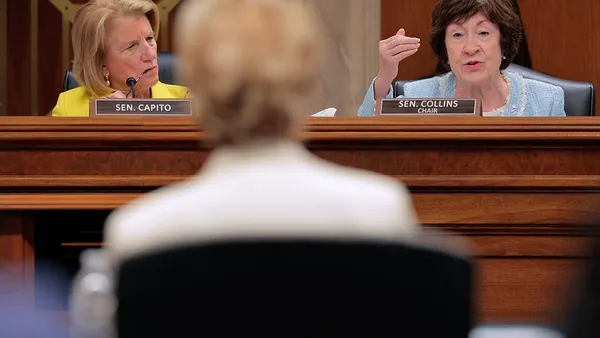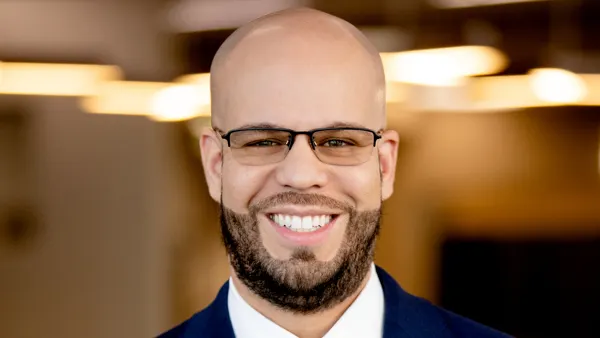Dive Brief:
-
Childcare and early childhood education experts and advocates want communities, states and the federal government to reimagine approaches to early learning so high-quality, accessible and equitable opportunities are available to working families, they said during a Tuesday virtual working session hosted by New America.
-
While much of the conversation focused on the economic, social and academic benefits of early learning, speakers also strategized about sustainable changes, such as increasing compensation and training for childcare workers and educators; expanding affordable access to programs; and strengthening alignments between early learning and K-12 systems.
-
Improvements to childcare and early learning programs should have a holistic approach that links complex systems, such as healthcare providers, job training programs and more, said Cecilia Muñoz, a senior advisor at New America. “I think of this as living at a time when things are cracking open, we understand them better, we can see them differently,” Muñoz said. “So let this be a day to crack open what kids really need.”
Dive Insight:
After decades of frustration with the nation's underfunded and limited childcare and early childhood education system and the past year of pandemic struggles, the working session’s participants said there’s new momentum to make long-term, impactful changes to programs supporting young children.
“We cannot return to the way things were,” said panelist Amy O'Leary, director of Early Education for All, a campaign of Strategies for Children in Massachusetts. For example, she said although childcare is considered essential for the economy, 37% of early educators in Massachusetts are eligible for public assistance.
“We cannot make decisions about the K-12 side of the system without considering the implications for babies, toddlers, before and after school, summer and school vacations,” O'Leary said.
The sessions’ participants praised the recently passed American Rescue Plan as giving a boost for pandemic recovery to early learning programming. The American Rescue Plan provided an influx of funding for childcare and early childhood education, including $39 billion in child care relief funding, $1 billion for Head Start early learning programs and $250 million for Part C early intervention under the Individuals with Disabilities Education Act.
Using the American Rescue Plan funds and previous stimulus money in ways that are impactful should be a priority, said panelist Danielle Ewen, a principal at EducationCounsel. “We've been given a lot of money. It's not enough, it won't do everything, but if we don't spend it in ways that transform the system and are centered on equity, we won't get any more.”
The working session’s participants also pointed to many obstacles that money alone may not solve. For example, the uncertainty in child care enrollment caused by COVID-19 is threatening the survival of childcare centers, according to a survey by the National Association for the Education of Young Children. Additionally, 4.5 million childcare slots could be permanently lost as a result of the pandemic, according to an analysis by the Center for American Progress.
Problem-solving and transformative change will come from collaborations in communities, Congress, state governments and through discussions with people most impacted by the childcare and early learning systems, such as providers and families, the panelists said.
State-level activity has been busy in these areas this year. According to the Education Commission of the States, 43 states have introduced 274 bills centered on Pre-K-3 issues. Regarding childcare issues, 48 states are considering 692 bills, according to the National Conference of State Legislatures.
“We're about to have this infrastructure conversation as a country. We've got to see the care infrastructure, the relationship infrastructure, as central to how we ensure our long-term prosperity and wellbeing,” said speaker John B. King Jr., president and CEO of Education Trust and former U.S. Secretary of Education.











